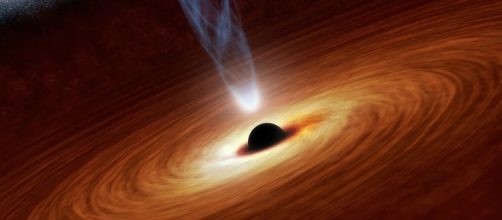The black hole is one of the biggest mysteries in science, leading to a host of speculations about its numbers, uses and origins. A lot of scientists believe that black holes are abundantly seen across our observable universe, and some believe that they may even be at the center of galaxies. After years of speculation, we may now have a telescope specially suited to capture the very first image of a black hole.
Event Horizon Telescope
The device in the spotlight is actually an Earth-sized telescope that has been created by linking radio receivers from all over the planet.
It is being called the Event Horizon Telescope, and its sights will be aimed at the center of our own galaxy.
Scientists have theorized that Black holes are the powerhouses that keep our galaxies together, and even if the center of the galaxy doesn’t hold one of these mind-blowing portals, it may uncover deeper truths about our existence. Whatever is present in the center of our galaxy, it possesses a great amount of gravitational force, as it makes stars closer to the center travel at a speed 4 million times faster than our Sun. By using the Event Horizon telescope, we may be able to finally solve this mystery.
A shot in the dark
Although scientists remain skeptical about actually gathering hard evidence regarding black holes, the Event Horizon telescope may be their best bet in decades.
Sheperd Doeleman, the Astrophysics who is also the project leader for this mission had this to say to BBC News: "We've been fashioning our virtual telescope for almost two decades now, and in April we're going to make the observations that we think have the first real chance of bringing a black hole's event horizon into focus."
The Event Horizon is the edge of the action, the area where gravity begins to act almost uncontrollably strong and sucks in everything in its path, including stars and even light. Capturing proof of the Event Horizon will be just as conclusive as capturing the black hole itself.
If this mission is a success, it may change the face of astrophysics as we know it, which is why millions of scientists around the world await the results with baited breath.

